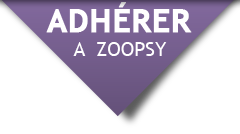| |
16th Annual Meeting of the European Society of Veterinary Clinical Ethology
ESVCE
7th Annual Meeting of the European College of Veterinary Behavioural Medicine-Companion -Animals - ECVBM-CA
Annual Meeting of the German Society of Veterinary Behavioural Medicine and Therapy – GTVMT
- Hambourg (Allemagne) - 24 au 26 septembre 2010
Plus d'informations
Deadline for submitting abstracts: 31st March 2010
Call for papers
The submission of case reports is especially encouraged
Guidelines for abstract submission
Abstracts based on completed research (qualitative or quantitative), critical reviews or case reports are welcome. There will be three categories of abstract submission
- Long spoken presentations (25 minutes plus 5 minutes discussion) – these should be data based, original scientific research
- Short spoken presentations (10 minutes plus 5 minutes discussion) – these may be case reports, treatment regimes, data based or other material
- Poster presentations – these may be case reports, treatment regimes, data based or other material
The abstract must be in English, can be no longer than 300 words and should be concise, informative and explicit. Providing a list of topics to be covered, or using statements such as “results will be discussed” or “a new theory will be developed” is not appropriate.
All submissions will be reviewed anonymously by at least four (4) independent referees, according to the pre-set criteria including: abstracts having the components required (as listed below), the quality of each component, overall clarity of the abstract, and importance of the research to the field.
Research abstracts must include the following components:
- an introduction (a few sentences introducing the study and its objectives)
- methodology – including a description of the participants (both human and animal), such as number (n), type, age, gender, and species, and a description of the study design, data collection, data analysis and apparatus used
- main results, including, when appropriate, statistical test, significance level and actual test value (e.g., F(df) = ?, p < 0.05)
- principal conclusions and implications for the field
Critical review abstracts must include the following components:
- an introduction (a clear statement of the purpose of the review)
- key literature references to theory, concepts, evidence or methodology that have been reviewed or re-evaluated
- main findings
- principal conclusions and implications for the field
Case reports abstracts must include the following components:
- an introduction (anamnesis, etiology and general background information regarding the case)
- key literature references to theory, concepts, evidence or methodology that have been used
- diagnosis and therapy
- principal conclusions and implications for the field, if appropriate
Abstract formatting instructions
1. All abstracts must be typed, single-line spaced and must fit on one page.
Font size should be Times New Roman 12 throughout.
2. First line: indicate intention in capital letters – LONG OR SHORT SPOKEN PRESENTATION OR POSTER
3. Second line: descriptive, concise, meaningful title – in bold.
4. Third line: names of all authors. Underline the presenting author.
5. Fourth line: addresses of authors (institution, city, country) and e-mail address of presenting author.
6. Then leave two blank lines.
7. On the next line, the text of the abstract – no longer than 300 words.
8. Do not indent for paragraphs but leave a one-line gap between paragraphs.
9. When using uncommon abbreviations, spell out in full when first mentioned, followed by the abbreviation in parentheses. Do not abbreviate in the title of the abstract.
10. Tables are not permitted in the abstract.
11. For critical reviews, key references (if appropriate) should be listed in abbreviated form, e.g., Dutton, D. and Williams, C. 2004. Anthrozoös 17(1): 210–224.
Abstracts may be posted or submitted electronically (MS Word attachment). Two copies of the abstract must be submitted, one with the authors’ names and affiliations removed.
A maximum of two (2) abstracts may be accepted from each presenting (or first) author (e.g., 1 spoken and 1 poster presentation, or 2 posters). Unattended posters are not allowed, although a presenting author may delegate someone else to present a poster on their behalf, if they cannot attend in person.
All abstracts that do not follow presentation guidelines will be rejected.
For any questions: please contact
Goncalo da Graca Pereira
or Daniela Zurr
|



